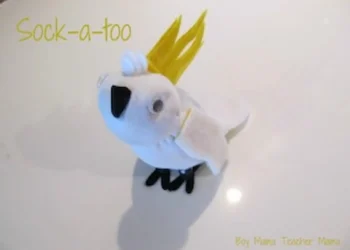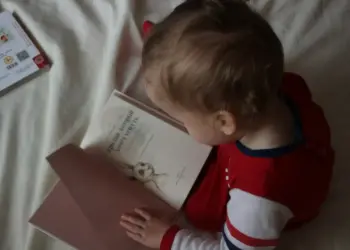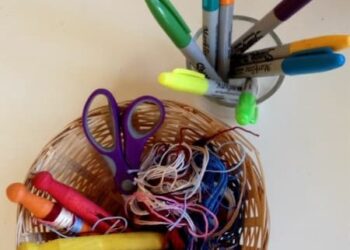It doesn’t matter if she’s deaf”, he says. “My aunty Demi can listen with her eyes and whisper with her hands.
Have you ever stopped for a moment to wonder how your life would change if you lost your hearing?
To be honest, I’d never given it much thought. Until I read Whisper, my hearing was something I had definitely taken for granted.
This is the first YA fiction book review to appear on My Little Bookcase if you can call it a review. I’ve divulged a little too much about the story, characters, and themes, and haven’t really focussed on other writing features. I do hope that it gives you a better appreciation of people living without hearing though. Whisper certainly had that effect on me. It is most certainly a heartbreaking and enlightening story.
I was fortunate to be at the launch of Whisper, held at the John Pierce Centre. It was interesting to listen to the author, Chrissie Keighery, and her editor, Hilary Rogers, speak of the book. Months of research went into the story before writing began, and Chrissie praised the assistance of many staff members and students from the Victorian College for the Deaf. However, most fascinating to me was listening to the editor talk about the genesis of this book’s theme and storyline.
Hilary found herself thinking about a family who attends her local café; both parents and their daughter are deaf. Hilary began asking herself questions about this girl. What books would she read as a teenager? Are there characters in books that she can relate to? And so, the seed for Whisper was planted. I really appreciated knowing that editors and authors are trying to reach as many people as possible with rich and meaningful literature.
Demi Valentino lost her hearing after contracting meningitis at 14. She perseveres for two years in continuing to attend her hearing school, but trying to keep up is exhausting.
At the beginning of Year 11, which is where the story begins, Demi decides to attend a school for the deaf. She believes it is the only way she will still be able to achieve her dream of becoming a criminal lawyer.
We take a journey with Demi as she matures, not only as a teenager but as a deaf teenager. She must come to grips with the changes in her life and try to work out who she is and who her friends are. Demi’s friends, new and old, challenge her to reassess her values. She’s introduced to the concept of ‘audism’ and the symbolism of deaf people living inside bubbles. As we follow Demi’s raw and heartbreaking journey, we too can’t help but assess our own values as readers.
I have to remind myself that things are different now. I wouldn’t laugh like that anymore, but I know that others will laugh at me.
I admire authors who can capture the vulnerability of teenagers, and I think Chrissie has done that quite effectively in Whisper. Even as adults we can remember and relate to that time in our lives. Chrissie portrays Demi as a typical teenager. She goes gaga over boys, worries about what others think of her, and acts selfishly at times. Finding yourself is a journey for any young adult, but for Demi, her path took a dramatic turn when she lost her hearing and she is now forced to make decisions that she never thought she’d need to make.
The three girls move off, sticking their earphones in as they go. They are choosing to block out the sounds of the world. It’s a choice I used to make without thinking.
I get the sense that Demi is in limbo, and stuck between two worlds. She feels like she’s missing out and being left behind by her hearing friends, but she can’t always keep up with the speed at which her new friends sign. She feels that her old friends don’t understand her, but she’s not sure that her new friends do either.
It’s only when people cup their hands to their faces to talk into each other’s ears that I am reminded of how much I’m missing.
Demi still considers herself normal but there are many adjustments that she must make. She can no longer see American movies with her friends because they don’t have subtitles; she can’t communicate with her friends at dance parties where it is dark because lip-reading isn’t possible; she must learn to dance through vibration and by watching others because she can no longer hear the music; and crossing the road becomes more dangerous because she can’t hear oncoming traffic.
Demi struggles to deal with the increasing frustration she experiences being deaf. She feels isolated by the way people treat her and angered by people who judge and imitate the deaf. Even when people are trying to be kind they still have a way of alienating her.
I don’t feel relieved anymore. I’m irritated. He’s clearly not deaf. All that stuff about how beautiful sign language is. Maybe it is beautiful if you have a choice about it. If you haven’t been shoved into a silent, hopeless world you know nothing about and don’t want to be in. I imagine for a moment what it would be like to have a normal life.
I admire Demi, who at 16 finds a way to bring her two worlds together. She also learns that life doesn’t stop for other people because she lost her hearing. She comes to understand that her family and friends have their own troubles and needs.
I am juggling two worlds. The hearing world and the deaf world. And I’m smiling, confident, as I do it.
Teenagers will obviously relate to Demi, but Whisper is also a beautiful story for mothers to read. There were many points in the story where I cried. Some of the tears were definitely for Demi, especially when she was forced to be home alone at night. As a mum though, I was also crying for Demi’s mother. Whisper is obviously told from Demi’s perspective, so we sense the frustration Demi feels towards her mother who seems heavily focussed on making sure that Demi continues to live a ‘normal’ life. She encourages her to speak (as opposed to sign), see old friends, and return to her old school. Demi feels that her mother is not respectful of her decisions. As a mum, I completely understand where Demi’s mother is coming from; it must be extremely hard to accept that life for your daughter is going to be incredibly challenging.
There are varying degrees of deafness and Chrissie does her best to represent many of them within the story. There are characters who are profoundly deaf and others who are partially deaf. There are characters who sign and speak and others who just sign. There are characters who make use of advanced technologies to assist with their hearing and others who cannot. There are characters who live with deaf family members and others who don’t. There are characters who learn to sign in order to communicate with their family members and others who find it more difficult.
I respect that Chrissie has chosen the main character to lose her hearing. I think it allows for all readers to gain a better perspective of hearing and deaf communities. It’s hard for people with hearing to understand what it’s like to be deaf and vice versa. Demi provides a channel with which that understanding is made easier. This book allows you to look at issues people face that you’ve possibly never considered.
How could Nadia ever understand what it was like to be me? She couldn’t. Before I went deaf, I would never have understood.
I would also love to see this book being read by teenagers and young adults in schools. It’s not at all preachy, but Whisper provides some great content for discussion around themes of friendships, judgments, and treating others with kindness and understanding.
Book Details:
Whisper
Author: Chrissie Keighery
ISBN:978-1921759321
Format: Paperback
Publisher: Hardie Grant Egmont, August 2011















